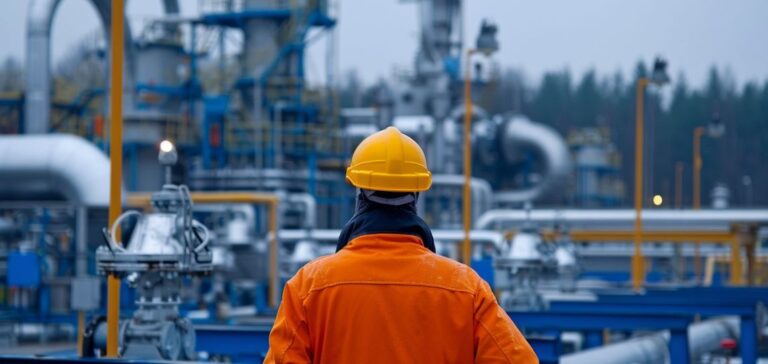Egypt, once self-sufficient in natural gas, is facing a significant decline in its domestic production. This decline is largely due to the drop in output from its largest offshore gas field, Zohr, operated by Eni. This field, which produced about 2.7 billion cubic feet per day in 2022, saw its production fall to 1.9 billion cubic feet per day at the start of 2024. In response, the Egyptian government is seeking alternative solutions to ensure the country’s energy security, including exploring the option of leasing a floating natural gas liquefaction unit in Germany.
During the CERAWeek conference in Houston, Egypt’s Minister of Petroleum, Karim Badawi, discussed this initiative with Philipp Steinberg, the German Director General of Economic Stabilization and Energy Security. Their meeting explored the possibility for Egypt to lease a floating liquefaction unit currently stationed at the German terminal in Mukran, in the Baltic Sea. This floating unit would help Egypt increase its production of liquefied natural gas (LNG) to meet its growing internal needs.
Furthermore, the two officials discussed the possibility of strengthening energy cooperation between Egypt and Germany, particularly the potential for Germany to purchase Cypriot natural gas through Egypt’s liquefaction infrastructure. This cooperation could extend beyond mere equipment leasing, positioning Egypt as a central player in the European LNG supply chain.
Consequences of the decline in Zohr’s production
The drop in Zohr’s production marks a break from the positive energy dynamics observed since 2018, when Egypt became self-sufficient in natural gas and even began to export part of its production. Today, the situation has changed radically, and Egypt is now forced to resume LNG imports to meet domestic needs. In September 2024, the Egyptian government launched a tender for the purchase of 20 LNG shipments between October and December 2024, marking its return to imports after six years of absence.
Efforts to revive domestic gas production
In addition to short-term measures, such as leasing liquefaction facilities, Egypt is implementing an extensive exploration plan to revitalize its domestic gas production. With a budget of $1.8 billion, this plan covers 35 gas blocks. In January 2025, a first success was achieved with the discovery of the Nefertari-1 field by ExxonMobil. However, despite these efforts, Egypt’s transition from being a net exporter to a net importer raises questions about the sustainability of its energy model, which is heavily reliant on natural gas, accounting for 52% of the country’s total energy production, according to the International Energy Agency.
Growing dependence on liquefied natural gas
Egypt’s increasing reliance on liquefied natural gas for its domestic supply further exposes its vulnerability to fluctuations in global supply. The initiative to lease liquefaction facilities in Germany illustrates the forced adjustments Egypt must make to maintain its energy security. While these measures help address the immediate energy crisis, they also highlight the fragility of Egypt’s energy system, which depends on stable gas production to meet its domestic energy needs.






















